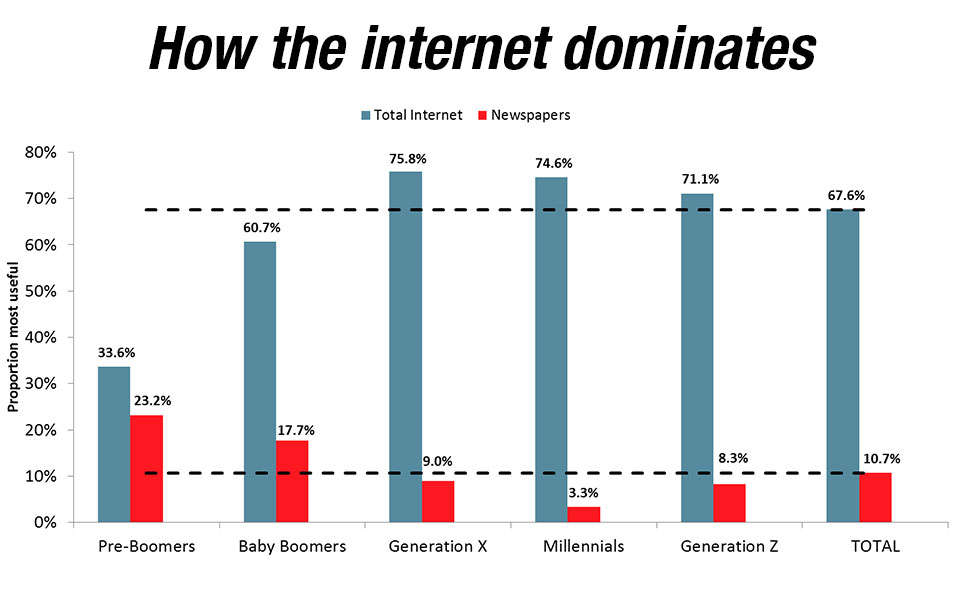MORE than two thirds of Australians planning to buy a car say the internet is their preferred method for information.
A new study by Roy Morgan Research shows 45.6 per cent of intending car buyers use Google as the search engine for finding information, and 24.9 per cent go directly to a website.
This compares with only 10.7 per cent who used newspapers; 5.4 per cent using television; and 4.1 per cent using magazines.
Roy Morgan industry communications director Norman Morris said internet was a valuable source of information applicable to specific decision making because the purchase of a new car generally involves the need for more information than most other product areas.
“The internet is ideally suited to providing very detailed information for those intending to purchase a new vehicle, as shown by the fact that 67.6 per cent of intenders consider it to be the most useful media for their decision making in this market.
“The dramatic rise in the use of the internet among new-vehicle intenders is in contrast to the decline in the importance of newspapers which have fallen to only 10.7 per cent.”
The survey – conducted with 50,000 respondents including 5000 people intending to buy a new car – showed the internet had increased its audience in the past four years.
Over that time the internet had increased its relevance as the most useful source of information for car buyers with an increase of 10.1 percentage points to 67.6 per cent.
“Over the same period, newspapers suffered the biggest loss with a decline of 6.3 percentage points to 10.7 per cent, followed by magazines down 2.1 percentage points to 4.1 per cent, and television down 1.9 percentage points to 5.4 per cent,” he said.
Internet search engines, such as Google, have been the main way information is sourced by new motor-vehicle intenders with 45.6 per cent followed by those going directly to specific websites (24.9 per cent).
When it comes to the ages of people using various methods for researching their next car, ‘pre-boomers’ (aged 72 years plus) and ‘baby boomers’ (aged 57-71 years) still prefer newspapers.
By contrast, ‘millennials’ (aged 27 to 41 years) have the lowest preference for newspapers with only 3.3 per cent compared to 74.6 per cent for the internet.
The survey also found that television has a low overall average as an information source with only 5.4 per cent and has its highest score among ‘generation Z’ (aged 14-26 years) with 8.3 per cent.
Magazines remain relevant to the oldest generation called ‘pre-boomers’ (aged 72 years plus) with 8.8 per cent against a market average of only 4.1 per cent.
“There is a need to understand generational and other differences across other media considered of value among intending buyers,” Mr Morris said.
“The older generations, for example, still maintain an above-average level of interest in the printed material provided by newspapers and magazines.”
By Neil Dowling













 Read More: Related articles
Read More: Related articles

